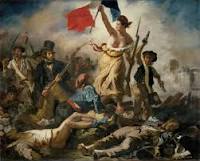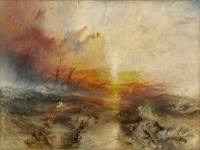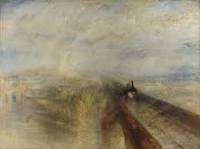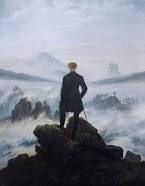AP Euro Master Quizlet Unit 6
0.0(0)
Card Sorting
1/126
Earn XP
Last updated 12:58 AM on 1/31/23
Name | Mastery | Learn | Test | Matching | Spaced | Call with Kai |
|---|
No analytics yet
Send a link to your students to track their progress
127 Terms
1
New cards
Agricultural Revolution
Term that refers to dramatic improvements and modernization of farming techniques and technologies. It led to significant increases in crop yields which improved the diet and health of the population.
2
New cards
capital
Money that is used for investment.
3
New cards
entrepenuers
A person who organizes and operates a business.
4
New cards
hydropower
Energy that is generated by the flow of water.
5
New cards
textile
Of, or pertaining to cloth or to the production of cloth.
6
New cards
cottage industry
Economic term for the production of goods in the private homes of the peasants. Goods, such as cloth, were woven by families in order to raise additional income.
7
New cards
spinning jenny
One of the first industrial machines developed to speed up the production of cloth, it helped begin the factory production of textiles and started the Industrial Revolution.
8
New cards
steam engine
Designed by James Watt in 1769, this was the first generator of artificial power developed by man. The invention made the Industrial Revolution possible.
9
New cards
Claremont
Inventor Robert Fulton's first successful steam powered boat, it completed a voyage up the Hudson River in New York in 1809.
10
New cards
Rocket
Inventor George Stephenson's award-winning steam powered railroad that won a British national competition in 1829.
11
New cards
Greenwich Mean Time (GMT)
The first system of standardized world time, it divides the globe into 24 separate time zones.
12
New cards
Factory System
A new system of producing goods that appeared during the Industrial Revolution and led to the gradual disappearance of Cottage Industry. Workers came to work in factories using powered machinery.
13
New cards
"iron law of wages"
A famous expression found in David Ricardo's Political Economy and Taxation. Ricardo asserted that workers were governed by the law of supply and demand just like any other commodity.
14
New cards
Great Exhibition (aka: Crystal Palace)
The world's first World's Fair, it ran from May-October 1851. Dozens of nations displayed their latest inventions and products for millions of daily visitors.
15
New cards
Irish Potato Famine (aka: The Great Hunger)
The potato crop of Europe was struck by a devastating fungus between 1845-1852, leading too mass hunger and political instability all over Europe. But nowhere was more devastated than Ireland. Over 1,000,000 Irish died.
16
New cards
Corn Laws
A series of tariffs passed by the British Parliament that were placed on imported grains in hopes of protecting British landowners and farmers. The tariffs kept bread prices higher for poor urban workers.
17
New cards
tenement
A run-down and typically overcrowded apartment building, usually in a poorer neighborhood of a city.
18
New cards
cholera
A bacterial disease usually caused by contaminated water.
19
New cards
typhoid
A bacterial disease usually caused by contaminated water.
20
New cards
tuberculosis (aka: TB)
A highly contagious bacterial infection that typically affects the lungs, it is one of the leading causes of death in the world. It devastated the overcrowded cities of the 19th century.
21
New cards
sanitation system
A complex system of pipes that supply clean, safe drinking water and separate pipes that remove waste.
22
New cards
Metropolitan Police of London (aka: "Bobbies")
One of the first modern, urban police forces, they were first organized by Sir Robert Peel. The goal was to improve public safety in the city of London.
23
New cards
Factory Acts
A series of laws and regulations passed by the British Parliament in order to improve the working conditions and working hours of children and women.
24
New cards
Mine Acts
Laws passed by the British Parliament that banned the use of women, girls, and boys under the age of 10 in the mining industry.
25
New cards
exploitation
The action of treating someone unfairly in order to benefit from their labor.
26
New cards
labor unions
An organized association of workers, often in a specific trade or industry, formed to protect and advance the rights of members.
27
New cards
Combination Act
Passed by the British Parliament during the Napoleonic Wars, the law forbid workers from forming labor unions and banned collective bargaining.
28
New cards
strike
A labor protest caused when a large number of employees refuse to work in hopes of forcing company management to give in to demands.
29
New cards
Luddites
A movement of British workers who smashed factory machinery as a form of labor protest. Anyone who is afraid of technology or technological progress.
30
New cards
bourgeoisie
Term referring to the urban, educated middle and upper classes. Karl Marx used the term to refer to the "oppressors" of workers.
31
New cards
proletariat
Term referring to the urban, working-class of Europe. Karl Marx used the term to refer to the oppressed class he hoped would embrace communism.
32
New cards
Great Reform Bill of 1832
Important law that granted voting rights to urban, middle-class men in Britain. It almost doubled the number of eligible voters.
33
New cards
franchise
Term that refers to the power to vote.
34
New cards
suffrage
Term that refers to the power to vote.
35
New cards
domestics
Term that refers to people, usually women, who are employed to work in a home as maids, cooks, and laundresses.
36
New cards
universal manhood suffrage
Political term that means that all adult man have the right to vote.
37
New cards
People's Charter
A national petition in Britain that demanded universal manhood suffrage, secret ballots, and salaries for members of Parliament. It gathered over 6,000,000 signatures bbut was never accepted by Parliament.
38
New cards
abolition
The political and social movement that fought to end the slave trade and the practice of human slavery all over the world.
39
New cards
Congress of Vienna
One of the most important diplomatic events in European history, the Congress went from November 1814 to June 1815. The goal of the diplomats was to restore European order after the defeat of Napoleon.
40
New cards
Prince Metternich
he served as the Austrian Foreign Minister and later the Chancellor (Prime Minister) during most of the first half of the 1800's. His conservative views dominated European international politics for decades after the Congress of Vienna.
41
New cards
restoration
The act of returning a monarch to their throne, a government to power, or the control of a previous regime.
42
New cards
legitimacy
Something that is legal, rightful, or appropriate.
43
New cards
balance-of-power
The European diplomatic goal of preventing any single nation from dominating the entire continent. Britain was especially dedicated to it.
44
New cards
Troppau Protocol
An 1820 diplomatic agreement between Austria, France, Prussia, and Russia that pledged military assistance to any European government threatened by revolution. Britain strongly opposed the agreement.
45
New cards
ideology
Ideas and ideals that form the basis of thoughts and attitudes toward economic and political goals.
46
New cards
conservatism
The political ideology that supports free-enterprise, private ownership of property, and traditional social values.
47
New cards
liberalism
The political ideology that supports personal liberty, individual rights, and equality before the law.
48
New cards
"The government that governs best, governs least."
A phrase by John Stuart Mill that summarizes the philosophy of liberalism.
49
New cards
free trade
The economic policy that argues that international trade should have no restrictions, such as tariffs, quotas, or embargoes.
50
New cards
capitalism
An economic system in which business is controlled by private companies and individuals, not the state.
51
New cards
socialism
An economic theory that supports the state's control of the major resources and businesses in society. Socialists believe that the state can ensure that all benefit equally from economic activity.
52
New cards
subjugate
To bring someone or something under domination or control, especially by conquest.
53
New cards
Utopian Socialism
A branch of socialism that advocated the formation of small, idealistic communities that focused on communal living around a specific business.
54
New cards
New Lanark
A large textile factory community in Scotland that was turned into a model Utopian Socialist experiment by Robert Owen. Owen built good worker housing, schools for the town's children, and paid fair wages.
55
New cards
July Monarchy
The nickname for the reign of the French monarch, King Louis Philippe. It lasted from the July Revolution in 1830 until the Revolution of 1848.
56
New cards
Provisional Government
A temporary government set up after the overthrow of Louis Philippe in February 1848. It lasted until June 1848. A term applied to any interim government set up to temporarily keep a state functioning until a new permanent regime can be formed.
57
New cards
National Workshops
An employment program established by the French Second Republic in February 1848. It guaranteed work for any unemployed laborer who could prove residence in Paris. It was designed by the socialist, Louis Blanc.
58
New cards
June Days
This was a violent uprising from June 22 - June 26, 1848 when Parisian proletarians battled the French Army. Workers were angry at the closure of the National Workshops. Over 10,000 were killed.
59
New cards
French Second Republic (1848 - 1852)
Term for the government that administered France from the fall of Louis Philippe to the beginning of the Second Empire.
60
New cards
Louis Napoleon Bonaparte (AKA: Emperor Napoleon III)
The nephew of Napoleon, he was elected president of the Second Republic and in 1852 he reestablished his uncle's Empire as the "Second Empire."
61
New cards
Second Empire (1852 - 1870)
Term for the government that administered France under the reign of Emperor Napoleon III. It was an authoritarian state that experienced many successes, but was destroyed by military defeat.
62
New cards
autonomy
self-government for a region
63
New cards
Magyar
A synonym for Hungarian.
64
New cards
reactionary
A philosophy that opposes any political or social reforms.
65
New cards
Diet of Frankfurt (1848 - 1849)
A German nationalist meeting that gathered in hopes of forming a unified German state. It ended in failure.
66
New cards
Kleindeutsch
The "Small German" faction at the Diet of Frankfurt. They favored the creation of a unified Germany under Prussian dominance and the exclusion of Austria.
67
New cards
Grossdeutsch
The "Big German" faction at the Diet of Frankfurt. They favored the creation of a unified Germany under Austrian dominance.
68
New cards
Giuseppe Mazzini
Italian nationalist leader who led the decades long effort for the creation of a unified Italian state.
69
New cards
Young Italy
The Italian nationalist movement led by Mazzini. By 1848 it had over 50,000 members all over the Italian peninsula.
70
New cards
Carboneri
It was a secret network of Italian nationalist groups that loosely cooperated in an effort to unify Italy.
71
New cards
Romanticism
A major European art movement that flourished between the 1790's and the 1830's. The Romantics focused on injecting passion and emotion into their art, music, and writings.
72
New cards
Principles of Political Economy and Taxation by Ricardo (1817)
This is a classical economic text that argued that the "law of supply and demand" applied to rent on land as the population grows and to labor in the "iron law of wages.
73
New cards
Principles of Population by Malthus (1798)
This is a classical economics text that argued that the "law of supply and demand" applied to food and population. Malthus feared that the earth could not feed the growing population and that "starvation was inevitable."
74
New cards
Sanitary Conditions of the Laboring Population of Britain by Chadwick
This engineering text designed the modern water and sanitation system of pipes delivering clean water and separate pipes carrying away waste.
75
New cards
Wealth of Nations by Smith (1776)
The most influential economics text ever written, Smith argued in favor of free trade and economic capitalism. He was an influential physiocrat and opponent of mercantilism. He believed there are natural laws in economics, such as "supply and demand."
76
New cards
Reflections on the Revolution in France by Burke (1790)
This British work is the foundation of conservatism. He argued that the Revolution was too extreme and that no single generation had the right to destroy the work done by all previous generations.
77
New cards
Book of Household Management by Mrs. Beeton (1861)
This is a bestseller that offered advice to Victorian era women on how to run a proper home. The book contains recipes, advice on raising children and supervising servants.
78
New cards
Oliver Twist by Charles Dickens (1837)
Dickens wrote many stories about the suffering of the poor, especially children. Oliver Twist is the story of an orphan boy, raised in a workshop, forced into a life of crime.
79
New cards
On Liberty by John Stuart Mill (1859)
This political work is the basis of the philosophy of liberalism. It argues for maximum personal freedom and a minimum of government. It is famous for the line, "The government that governs least, governs best."
80
New cards
On the Subjugation of Women by Mill (1869)
Mill supported equal rights for ALL people, including women. He argued that society could not be truly free if half the population was denied the same rights, including the right to vote.
81
New cards
Ode on a Grecian Urn by Keats (1819)
An outstanding example of Romantic poetry, Keats was inspired by the images painted on an ancient Greek vase. There are 50 lines of poetry that end with, "Beauty is truth, truth beauty; that is all ye know on earth and all ye need to know."
82
New cards
Lyrical Ballads by Wordsworth and Coleridge (1798)
This is a collection of Romantic poems by two of the greatest British poets. The poems celebrate the beauty of nature.
83
New cards
Frankenstein by Mary Shelley (1818)
This Romantic horror story about a man trying to play God by creating life is a warning to the excesses of the Scientific Revolution and its worship of reason.
84
New cards
"Liberty leading the people" By Delacriox

85
New cards
The Slave Ship By JMW Turner

86
New cards
Rain, Steam, and Speed By JMW Turner

87
New cards
The Wanderer in the Mists by Friedrich

88
New cards
James Hargreaves
invented the spinning jenny
89
New cards
Richard Arkwright
Invented the water frame
90
New cards
Samuel Crompton
invented the spinning mule
91
New cards
James Watt
Invented the steam engine
92
New cards
Robert Fulton
invented the Claremont steamboat, and sailed up the Hudson River
93
New cards
Samuel Cunard
began transatlantic steamship voyages in the 1850s
94
New cards
George Stephenson
built the Rocket (railroad) which could move goods and people
95
New cards
David Ricardo
argued labor subject to the laws of supply and demand, called it the "iron law of wages", liberal economist
96
New cards
Thomas Malthus
British economist concerned that world's population was growing faster than the ability to sustain it, liberal economist
97
New cards
Edwin Chadwick
designed the first modern sanitation system for ensuring clean water supplies, first efforts at urban planning
98
New cards
Sir Robert Peel
created the London metropolitan police (Bobbies)
99
New cards
Luddites
group of workers who broke into factories and destroyed machinery
100
New cards
Bourgeiosie
middle class, emerged as new wealthy elite, fortunes from industry